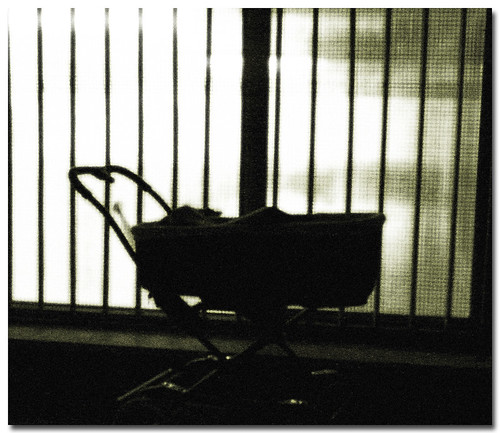 I have been told by many a patient and parent that our mere arrival at a scene calms folk. As if we were the reinforcements sent for by the last surviving members of a forward squadron, pinned down by enemy fire. They hear our horns and calls and smile, because we've arrived to make everything better.
I have been told by many a patient and parent that our mere arrival at a scene calms folk. As if we were the reinforcements sent for by the last surviving members of a forward squadron, pinned down by enemy fire. They hear our horns and calls and smile, because we've arrived to make everything better.But what do we do when our reinforcements fail to turn the tide of the battle?
I've written before about dealing with parents when their children are under your care and we've also discussed the proper way to deal with death notifications, but what do we do when the two situations are the same incident?
A widow is someone who loses a husband, an orphan has lost their parents but there is no term for a parent that loses a child. And for good reason. It is one of the things we don't talk about at dinner parties or at the water cooler. Losing a child is unimaginable. There are no words that a Paramedic could tell me that would make me come to terms if my own children had died, so finding the words to tell a perfect stranger may leave us stuttering and stammering.
Falling back into the old comfort zone of "They've passed" or "They're gone" will only get us into more trouble, as we all know, so be ready for the moment when all your efforts have failed. It's nice in PALS when every kid's rhythm changes, you got IV access on the first try and other difficult situations are handled on a prop or verbally, but we end it there. When was the last time your instructor played the part of the distraught parent?
During an emotionally charged call as the paramedic supervisor I contacted the mother of our patient in the next room to ask about past medical history and a lot of other things she didn't want to talk about. As she just began to calm I told her our standard "We're doing everything we can right now..." when she hit me with a whopper I wasn't ready for:
"Everything is going to be OK because you're here now right?" the pure desperation in her voice was outdone only in her cold grip on my arms as she turned me square to her and looked into my face.
It is very important to be completely honest and leave no room for parents to begin to interpret your statement to mean something it does not. If they ask you what you're doing, don't answer with the gauge of needle, but instead simple terms they can understand like, "we're giving (the child) medicine and fluids and carefully monitoring their reaction to it."
This mother asked me 2 questions I had received in various forms, but never this clearly. Just as she asked "Is her heart beating?" my mind began to say "no" just as my mouth uttered "We're beating it for her." "Is she breathing?" was met quickly with "we're breathing for her." and the rest of the conversation revolved around everything we were doing FOR her...not TO her.
Focus on what you're doing to help, not procedures you have done to them. Take the clinical edge off of your interventions and make it easy for a frightened mind to begin to understand and a breaking heart to come to terms with.


Comments